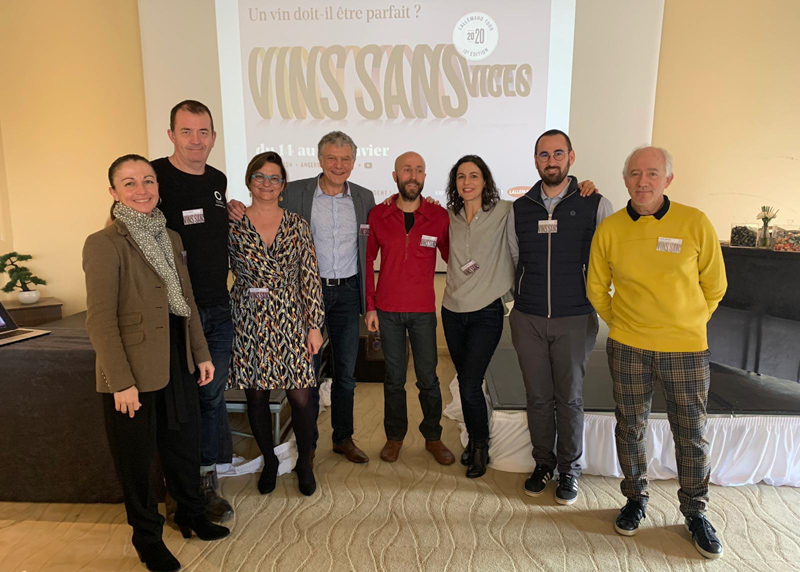
Facts don’t change people’s minds. It’s really annoying, but it’s true. We like to think that if we marshal enough evidence, that eventually the weight of evidence will prove irresistible to people. Sadly, this isn’t the case.
Facts don’t change people’s minds, but stories do. Narratives are how we understand our place in the world. Throughout history, different cultures have accumulated a collection of myths and stories that help them organize their thinking and understanding, and many of the themes are in common across different cultures. There are certain story archetypes that we seem drawn to. This is something we need to embrace in communicating ideas such as climate change. Simply presenting the facts is surprisingly ineffective.
This brings me round to the concept of change. Is change gradual or punctuated? Does it occur in small increments, or does it occur in bursts followed by periods of stasis? When I was a second year biology student I remember learning about conflicting evolutionary theories. The existing one was the gradualist position, where small changes accumulated. But there was a competing idea, the new theory, proposed by Gould and Eldredge – Punctuated Equilibria. It’s an idea that has been transferred from evolutionary theory to societal change more generally. Things stay more-or-less the same, then there is a sudden change.
An example of this sudden change is the way in the last couple of years there has been a massive societal backlash against plastics. What caused it? I think there was a general sentiment simmering below the surface that the way we were using plastics, which take centuries to degrade, was irresponsible. But the catalyst came with an episose of the BBC series Blue Planet II, where the powerful imagery showing the toll plastics were taking on marine life acted as the tipping point.
Another example would be societal attitudes towards smoking. Evidence about the harm of smoking accumulated over many decades, but still people used to smoke in restaurants, bars, workplaces and even on planes. Suddenly, this public smoking in enclosed spaces became unacceptable, and legislation was swiftly adopted in many countries.
One of the problems we face in communication is that we live in the age of the filter bubble, a term coined as recently as 2011. Our consumption of media has changed. In the past, we had a very limited number of media outlets – in the UK, three television channels, then four, then five – and this was fairly recently. Just a few radio stations, and a few national newspapers. We consumed more-or-less the same media, and it was push rather than pull. Now there are many, many media outlets, and we choose what we want to consume. It’s pull not push. And the algorithms on social media give us what we want. They feed us content in line with our self-expressed preferences.
The result is that our worldview is confined by existing beliefs. Our confirmation bias has been set free to rule us.
As a result, we have to find new routes to reach people. Our messages just aren’t getting through to the people who need to hear them. We are preaching to the converted.
It’s also worth thinking about who is the best person to communicate a message like that of climate change. I’d argue that the activists aren’t always the best advocates. The strongest believers can end up putting people off. For non-believers, activists are easy to filter out.
Even powerful messages can become noise. These days people have turned denial and confirmation bias into an art form.
What about language? I know that climate ‘chaos’ refers to the sort of disastrous destabilization of climate that could occur if we don’t keep the rise in average temperature below a certain level, but might climate ‘destabilization’ or ‘chaos’ be better terms to use than just change? It communicates that this is a problem, and also that the problem isn’t just the average rise. If we were dealing with, say, a 2 C rise, this could be planned for. But the evidence seems to be that while the distribution of temperatures has moved, the distribution has also broadened: we are seeing heightened variation, as well as a rise.
Wine highly susceptible to climate, and so this is a particular problem for wine. Climate an average – the vine sees the weather of the year. Gradual change would be easier to plan for, with normal vintage tolerances. But we are seeing more chaotic weather patterns, and it is very hard to adapt to climate chaos. The consequence is that viticulturists must hedge their bets, resulting in increasing production costs, which means more expensive wine, thus reducing market size.
I think we all have a lot to than Al Gore for with his film An Inconvenient Truth. This had a big impact on the way people saw climate change, although in the USA it might have been better if a Republican rather than a Democrat had made the film (the fact that it was Gore made it easy for Republicans to reject the message). Could powerful, big-splash messages like this be vital, and more important than many smaller, less impactful communications?
One recent positive has been than educating the next generation seems to be working. In the UK we have seen school strikes about climate change. This is a powerful statement to all.
Not being carbon neutral has to become socially unacceptable, for individuals, and for businesses. Large companies behaving badly need to be called out: they often hide behind seemingly good intentions, to distract journalists from probing too far.
When it comes to leading the conversation about climate change, the wine trade is in an ideal place to take a role. Wine is fun, and its consumption is joyous. People like wine. Rich folk buy wineries. Because of this, the stories around wine can be powerful, and can get through the confirmation bias defences of climate change deniers.
Perhaps more significantly, wine is – to use Richard Smart’s metaphor – the canary in the coalmine of agriculture. The sensitivity of wine grapes to even small changes in climate mean that it’s an early indicator of significant changes.
We are in an ideal place to bring stories that can effect change. Stories change behavior.
Let’s choose the right stories to tell, and concentrate less on presenting facts, more on giving examples. The rules of a good narrative – engrained deep in human consciousness – are worth following as we start to share.
See also: an article on wine and climate change I wrote for Nature
Leave a Comment on Communicating climate change: the role of the wine industry in changing people’s minds
